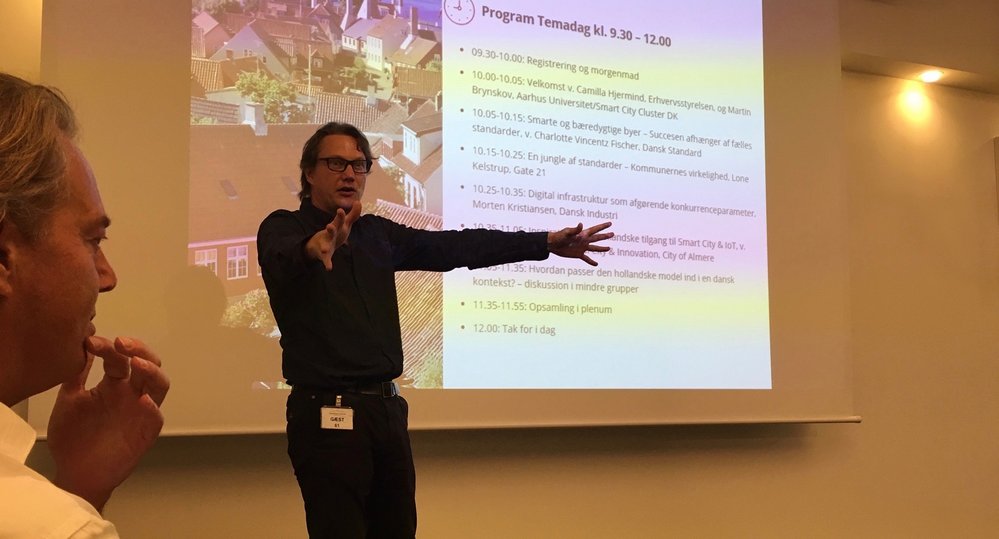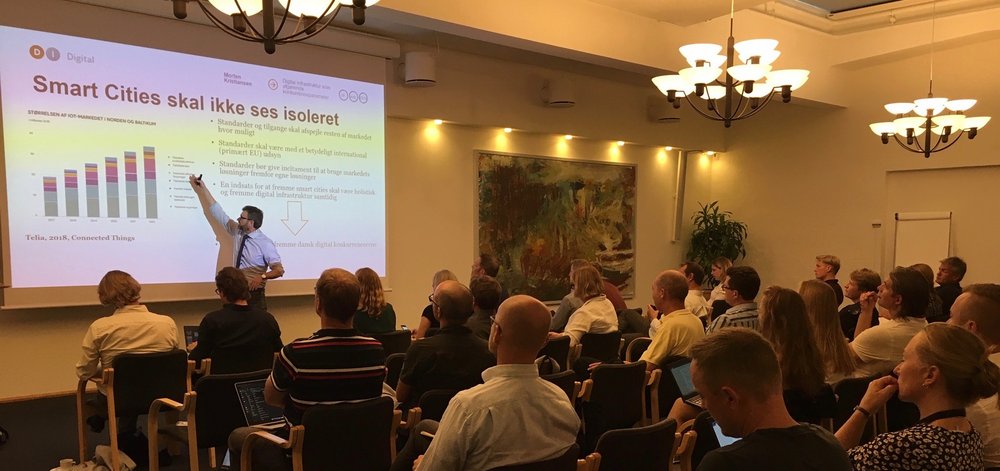Towards a Reference Architecture Model for Smart Cities and IoT in Denmark
A joint Danish meeting focusing on common standards for the technical framework and governance for IoT and smart cities and communities took place in Copenhagen. It is an important step for smart cities and communities in Denmark
Creating transparency and putting demands on relevant technologies for smart cities and communities is needed and in order to do this, standards and a common technical framework is key. Danish Business Authority, Smart City Cluster Denmark and Danish Standards are co-organising an event focusing on gathering the Danish initiatives in developing a joint approach towards the technical framework and governance for smart cities and IoT. As chair of the Danish Standards Committee of Smart and Sustainable Cities and Communities and part of Smart City Cluster Denmark Martin Brynskov is one of the driving forces behind the event.
"One of the biggest challenges with smart city projects is the scale-up. Many projects end in the first stage because they are locked in a technology that is not scalable. The key to scaling up is common standards and if Denmark wants to be in the forefront of smart cities and communities, developing common standards is crucial," Martin Brynskov says. As chair of Open & Agile Smart Cities (OASC) he has been working with standards in an international context for several years.

The Need for a Common Danish Ground
So why are these standards needed in Denmark? To give a concrete example it can simplify the public procurement which can save the municipalities time and make sure that they have clear guidance on which standards to refer to when they procure. What is happening right now is that municipalities invest in solutions that are not applicable with other solutions and not possible to scale. Scalable technology can save the municipalities not only time but also money.
"I think we have all been thinking that it is important to have common standards within the field of smart cities and communities for a while now. By having this meeting, we, Danish Standards, Smart City Cluster Denmark and Danish Business Authority, are taking the next step," Camilla Hjermind, Head of Division in Danish Business Authority, states.
The participants for the meeting come from different backgrounds which reflects the fact that there is a need for common standards, governance and cross-disciplinary solutions in Denmark. Martin Brynskov and Camilla Hjermind gave the welcoming speech which was followed by presentations from Charlotte Vincentz Fischer from Danish Standards, Lone Kelstrup from Gate21 and Morten Kristiansen from Danish Industry who all gave their different perspectives on the importance of standards.

An International Outlook
The last presentation was held by Frans Jorna, Director of Digital City and Innovation in the City of Almere (NL) and added an international perspective on standards. The City of Almere has been working with common standards for several years as part of the Open & Agile Smart Cities network and therefor Frans Jorna was invited to present their story in Copenhagen.
"The importance of the Open & Agile Smart Cities’ minimal interoperability mechanisms is clear. More than 140 cities have ascribed and this underlines the need for intercity cross-border standardization to keep citizens centre-stage. The meeting with Danish Institutions trying to achieve interoperable digital solutions was interesting for me, especially to see how Denmark has distinguished between innovation in governance and innovation in technology," Frans Jorna says.
Standardization for the technical framework and governance for smart cities and communities is a common challenge across borders and therefore it is important to learn from each other Martin Brynskov wraps up:
"We already have concrete international examples. The need for common standards is not new, and it is important to learn from the work that has already been done in an international context and build on their learnings when we develop common standards for IoT and smart cities and communities in Denmark."
The meeting took place on 28 August and you can see the full programme for the day here.
It was followed by an open meeting of the Standardization Committee where the future work for the committee was planned.
